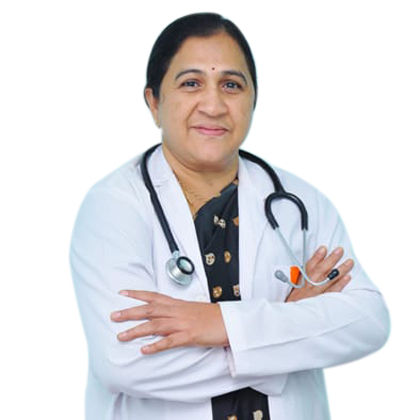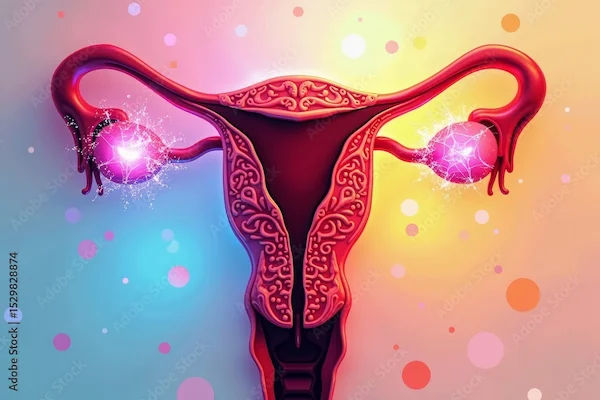Is It Better To Leave Cervix After Hysterectomy?
Wondering whether to keep your cervix during a hysterectomy? Learn the pros and cons of leaving the cervix intact and how it affects recovery, sexual health, and future cancer risk.

Written by Dr.Sonia Bhatt
Last updated on 7th Jul, 2025

Introduction
A hysterectomy—a surgery to remove the uterus—is a common procedure for women dealing with conditions like fibroids, endometriosis, or cancer. One important decision patients face is whether to keep or remove the cervix during the surgery. This article will help you understand the pros and cons of leaving the cervix intact so you can make an informed choice.
Consult Top Specialists for Personalised Health Advice
What Is the Cervix?
The cervix is the lower part of the uterus that connects to the vagina. It plays a role in childbirth, menstruation, and sexual health. During a hysterectomy, doctors may:
Remove the uterus but leave the cervix (subtotal or supracervical hysterectomy).
Remove both the uterus and cervix (total hysterectomy).
The decision often depends on your medical condition and your surgeon’s recommendation.
A. Benefits of Keeping the Cervix
Some women opt to keep their cervix for specific health and recovery-related reasons.
1. Faster Recovery & Fewer Complications
Since the cervix is left in place, the surgery is less invasive, leading to:
Shorter hospital stays.
Reduced risk of infection or bleeding.
Less impact on nearby organs like the bladder and bowels.
2. Possible Sexual Benefits
Some women report:
Better sexual satisfaction due to preserved vaginal structure.
Less discomfort during intercourse compared to those who have their cervix removed.
3. Lower Risk of Pelvic Organ Prolapse
The cervix provides some support to the pelvic floor. Removing it may slightly increase the risk of pelvic organ prolapse—when organs like the bladder or bowel drop into the vagina.
B. Potential Concerns of Keeping the Cervix
While there are advantages, retaining the cervix also comes with certain medical considerations.
1. Risk of Cervical Cancer
Even after a hysterectomy, the cervix can still develop abnormalities or cancer. Women who keep their cervix should continue with regular Pap smears to monitor for any changes.
2. Continued Menstrual-Like Bleeding
A small number of women may experience light bleeding if the cervix is left behind, especially if they retain some endometrial tissue.
3. Possibility of Future Surgeries
If cervical issues, like fibroids or abnormal cells, develop later, a second surgery may be needed to remove the cervix.
Who Should Consider Keeping the Cervix?
Retaining the cervix may be suitable for:
Women with a healthy cervix and no history of cervical abnormalities.
Those who want a quicker recovery and fewer surgical risks.
Women concerned about sexual function after surgery.
Who Should Consider Removing the Cervix?
In contrast, it may be safer to remove the cervix if:
Women with a history of cervical cancer or precancerous cells.
Those at high risk for cervical cancer, like HPV-positive patients.
Women who want to eliminate the need for future Pap smears.
Making the Right Decision
Every woman’s situation is different. Discuss with your doctor:
Your medical history.
Risks and benefits of each option.
Long-term health implications.
Lifestyle Tips After Hysterectomy
Whether you keep or remove your cervix, recovery is key:
Rest & Gradual Activity: Avoid heavy lifting for 6-8 weeks.
Pelvic Floor Exercises: Strengthen muscles with Kegel exercises.
Healthy Diet: Eat fibre-rich foods to prevent constipation.
Follow-Up Care: Attend all post-surgery check-ups.
When to Seek Medical Advice
Contact your doctor if you experience:
Heavy bleeding.
Severe pain or fever.
Unusual discharge.
If you're unsure about whether to keep your cervix, consult a specialist. At Apollo 24|7, you can book a consultation with a gynaecologist to discuss your options.
Conclusion
The choice to keep or remove the cervix depends on individual health needs. While keeping it may offer benefits like faster recovery and sexual function, removing it eliminates cancer risks. Talk to your doctor to make the best decision for your well-being.
Would you like to schedule a consultation with an expert? Visit Apollo 24|7 today for personalised care.
Consult Top Gynaecologists
Consult Top Specialists for Personalised Health Advice

Dr. Ramya G S
Obstetrician and Gynaecologist
11 Years • MBBS, DGO - Obstetrics & Gynaecology, DNB - Obstetrics & Gynaecology
Bengaluru
Apollo Clinic, JP nagar, Bengaluru

Dr. Asha Rani Singh
Obstetrician and Gynaecologist
24 Years • MBBS DGO
Delhi
Dr Asha Rani Singh Clinic, Delhi

Dr. Mona Yadav
Obstetrician and Gynaecologist
19 Years • MBBS, MD (Obstetrics & Gynaecology)
Dombivli
Nulife multispeciality, Dombivli

Dr. Sridevi Matta
Obstetrician and Gynaecologist
28 Years • MS ( OBG ), DGO, DNB Obstetrics & Gynaecology
Chinagadila
Apollo Hospitals Health City Unit, Chinagadila
(175+ Patients)

Dr. Soumya P
Obstetrician and Gynaecologist
6 Years • MBBS,MS (OBST & GYNAE)
Bengaluru
Apollo Clinic, JP nagar, Bengaluru
Consult Top Gynaecologists

Dr. Ramya G S
Obstetrician and Gynaecologist
11 Years • MBBS, DGO - Obstetrics & Gynaecology, DNB - Obstetrics & Gynaecology
Bengaluru
Apollo Clinic, JP nagar, Bengaluru

Dr. Asha Rani Singh
Obstetrician and Gynaecologist
24 Years • MBBS DGO
Delhi
Dr Asha Rani Singh Clinic, Delhi

Dr. Mona Yadav
Obstetrician and Gynaecologist
19 Years • MBBS, MD (Obstetrics & Gynaecology)
Dombivli
Nulife multispeciality, Dombivli

Dr. Sridevi Matta
Obstetrician and Gynaecologist
28 Years • MS ( OBG ), DGO, DNB Obstetrics & Gynaecology
Chinagadila
Apollo Hospitals Health City Unit, Chinagadila
(175+ Patients)

Dr. Soumya P
Obstetrician and Gynaecologist
6 Years • MBBS,MS (OBST & GYNAE)
Bengaluru
Apollo Clinic, JP nagar, Bengaluru




